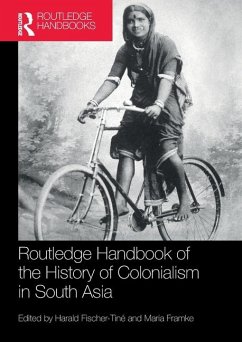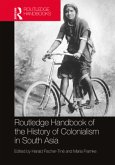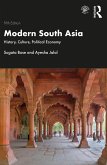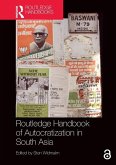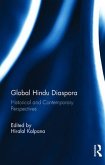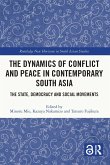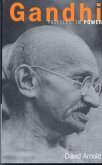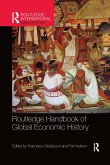The Routledge Handbook of the History of Colonialism in South Asia provides a comprehensive overview of the historiographical specialisation and sophistication of the history of colonialism in South Asia. It explores the classic works of earlier generations of historians and offers an introduction to the rapid and multifaceted development of historical research on colonial South Asia since the 1990s. Covering economic history, political history, and social history and offering insights from other disciplines and 'turns' within the mainstream of history, the handbook is structured in six parts:
Overarching Themes and Debates
The World of Economy and Labour
Creating and Keeping Order: Science, Race, Religion, Law, and Education
Environment and Space
Culture, Media, and the Everyday
Colonial South Asia in the World
The editors have assembled a group of leading international scholarsof South Asian history and related disciplines to introduce a broad readership into the respective subfields and research topics. Designed to serve as a comprehensive and nuanced yet readable introduction to the vast field of the history of colonialism in the Indian subcontinent, the handbook will be of interest to researchers and students in the fields of South Asian history, imperial and colonial history, and global and world history.
Overarching Themes and Debates
The World of Economy and Labour
Creating and Keeping Order: Science, Race, Religion, Law, and Education
Environment and Space
Culture, Media, and the Everyday
Colonial South Asia in the World
The editors have assembled a group of leading international scholarsof South Asian history and related disciplines to introduce a broad readership into the respective subfields and research topics. Designed to serve as a comprehensive and nuanced yet readable introduction to the vast field of the history of colonialism in the Indian subcontinent, the handbook will be of interest to researchers and students in the fields of South Asian history, imperial and colonial history, and global and world history.
The volume offers a comprehensive, nuanced, yet highly accessible and readable introduction to the key historiographical and methodological debates that have shaped the field of colonial studies on South Asia for the past decades. [...] It will be most useful to newcomers to the field of modern South Asian studies, as it provides effective and eminently readable introductions to some of the key debates, schools of thoughts, and developments in the historiography of this region over the last four decades. At the same time, the volume will also be useful to more seasoned practitioners who are seeking to expand their teaching or research by providing detailed bibliographies of the latest research on these topics. Overall, this volume provides a valuable contribution to our knowledge and understanding of South Asian colonial history and historiography, and this author anticipates it will quickly become a standard text assigned for courses about the history of modern South Asia and the British Empire in India.
Mark Condos, King's College London, UK. Connections. A Journal for Historians and Area Specialists (June 2022)
"It is a handbook rather than a textbook. Students at all levels will find the individual essays invaluable, when they are seeking an introduction to a new theme or to capture the lineaments of some debate in South Asian history. The volume will be useful also for teachers and researchers to have on their shelves as a "go-to" for tracking recent trends and historiography. I see its role as a reference book and it will contribute greatly to making South Asian history more widely and easily accessible to students in different parts of the anglophone world." - Samita Sen, Cambridge University
Mark Condos, King's College London, UK. Connections. A Journal for Historians and Area Specialists (June 2022)
"It is a handbook rather than a textbook. Students at all levels will find the individual essays invaluable, when they are seeking an introduction to a new theme or to capture the lineaments of some debate in South Asian history. The volume will be useful also for teachers and researchers to have on their shelves as a "go-to" for tracking recent trends and historiography. I see its role as a reference book and it will contribute greatly to making South Asian history more widely and easily accessible to students in different parts of the anglophone world." - Samita Sen, Cambridge University

